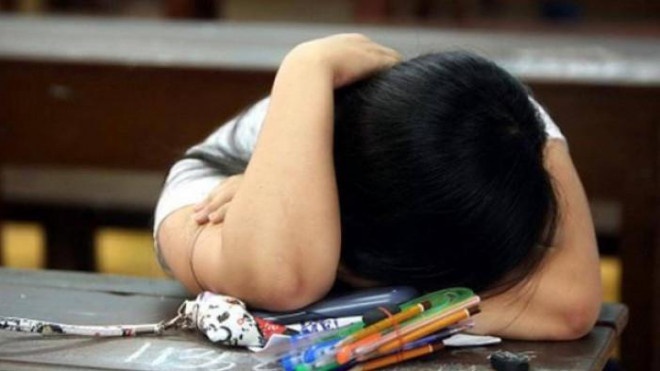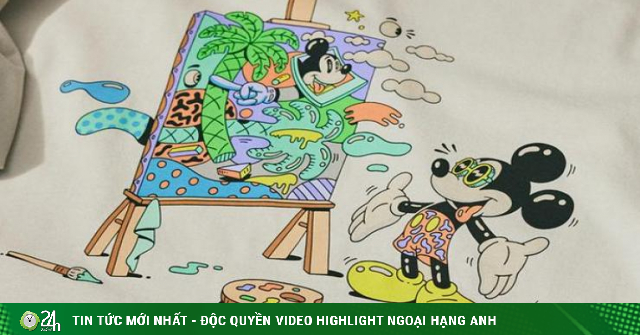Teenage “rebellious”, how parents need to be friends with their children?
Parents sometimes don’t understand why their children are rebellious and just see it as misbehavior, poor behavior, opposition to adults…
Before the unfortunate incident of teen suicide in recent times, Traffic Newspaper had an exchange with Assoc. Tran Thu Huong, Faculty of Psychology, Hanoi University of Social Sciences and Humanities to better understand the psychological developments of adolescents, and the story of parents’ “friendship” with their children.
Teenage “rebellious”, parents need to be friends with their children (illustration)
Teenage “rebellious”, why?
From the perspective of a psychologist, how do you feel about unfortunate incidents that happen to minors?
Assoc. Tran Thu Huong: More than ever, during the recent pandemic, mental health issues of the people in general and especially in children and adolescents in particular require great attention from the whole world. society, which is most related to family and school.
It is clear that the unfortunate incidents that have just happened take place at home.
Thus, we need to ask questions related to the children’s personal stories, and the stories related to the children’s relationships with family members and relationships with other people such as friends, family, and friends. neighborhood…
In fact, during the pandemic, online learning, children have emotional problems and uncontrolled behavior, which leads to more serious consequences such as some very heartbreaking suicides. past.
Why do children engage in these risky behaviors? In essence, in the process of development, in the teenage years, children have great changes in body, hormones, appearance, mood, behavior changes, cognition…
That’s the time when we often say kids “rebellion”, not because they want it but because of growth and change, as we say, sometimes surpassing the norm.
The important problem is that adults sometimes don’t understand why children have that “rebellion”, and only see that “rebellion” as misbehavior, poor behavior or resistance towards adults. ….
Parents need to understand that children do not want that, but the change is too much physically, physically and emotionally, making it difficult for children to control while their awareness is not equal to that of adults. When the parents do not understand the child and the children do not understand themselves and cannot share with others, the children fall into a huge void of disappointment, where the children have no support and have to fumble for themselves. look for solutions.
The psychological development of adolescents is very unpredictable, seems to be a difficult problem for parents?
Assoc. Tran Thu Huong: While working with many young people, I have been told by my children that “sometimes I want to, I try to see how I die, my soul flies to see people treat me.” How is it with you?”… That is a common emotional change that many children experience.
However, when adults hear such things, they panic, or think it is “nonsense” while the children are talking about it very seriously. If parents can empathize and trust them, they will be able to neutralize those behaviors and thoughts of their children.
However, it is often difficult because parents stand from the point of view of adults to see their children’s behavior and think that it is not worth it, it is easy to ignore and indirectly makes the children play with and lose confidence, making it even more difficult. increased risk behaviors (suicide, self-harm) more to try to prove to parents and people around “what I say is not nonsense”.
Sometimes people still think suicidal behavior in children like the recent cases is due to depression. But that’s not necessarily the case, maybe it’s just a deadlocked, unshared emotion that lasts until a point beyond the threshold, causing children to make decisions that do not anticipate consequences that cause great harm not only to their children, but also to their children. to parents and people around.
The biggest worry is pressure from family
There is an opinion that the cause of suicide in children is due to academic stress, and parents do not care enough and sympathize with children… is it true, ma’am?
Assoc. Tran Thu Huong: Actually, everyone is looking for ways to explain the cause of their children’s unfortunate problems. So looking for the cause, there must be a place to blame, but that’s not necessarily true because in fact we don’t know where the cause comes from, maybe pressure from the school, from parents, from family.
But the pressure from the school to lead the children to make such decisions, in my opinion, is not quite right, because the pressure from studying has been experienced by the children for a long time since going to school. 1 portion is very small.
What drives children to risky behavior is often emotional pressure, which comes from interpersonal relationships. It is the relationship in the family, with grandparents, parents, relatives…; school relationships with teachers and friends.
And usually, pressure from teachers does not lead to suicide, but often causes more hostile behavior. With friends, it can also create pressure in children, leading to depression and anxiety;
What worries me the most is the pressure from within each family, and there is often a process that stretches from the moment the child is born to the moment the child engages in risky behavior. And the most pressure comes from parents. And oftentimes, the pressure comes from the children themselves.
Parents pay little attention, teenagers are very sensitive
Parents often love their children the most, giving them the best, but in fact, it is also a pressure on children?
Assoc. Tran Thu Huong: Sometimes parents can’t imagine why it’s so stressful to always think that they love their children, always want to give the best for their children, accompany their children… However, parents do not understand that For a child at a young age, a lack of subtlety will also hurt the child.
For example, I have a story shared from children, that is when a child is called fat by friends, the child tells his mother “You must exercise”, but the parents say “it is okay to exercise because girls”. must be beautiful”. The mother’s words, although well-intentioned, seem to inadvertently push her children to think about other issues. Children who think “girls need to be beautiful” means that the mother is sharing the same opinion with friends saying that she is not beautiful…
Adolescents are very sensitive, with just one sentence they can deduce another story. This is something that parents pay little attention to.
According to WHO statistics, in recent years, the rate of depression, stress-related behavior problems, and suicide in adolescents is increasing. The age group with a high prevalence of high-risk behaviors (including suicidal behavior) is between 14-19…
This is a period when children have many changes, in the mindset that they have gradually become adults but are not yet adults; wants to leave the family but has not yet self-control, living dependent on parents and family; want to assert themselves… children want to be understood, shared and trusted by their families, but very few parents can fully trust their children and accept what their children say. That also makes children limit opening their hearts, sharing with parents and being angry with themselves, causing behaviors that harm themselves.
In fact, many young people who come to psychological counseling are having such problems.
So what should parents do to accompany their children?
Assoc. Tran Thu Huong: Therefore, parents need to listen, support and control children to a certain extent so that children can freely develop in their own space, without putting pressure on them.
More importantly, parents need to accompany and be friends with children from the first days of life.
At the same time, parents need to behave and speak properly, avoid hurting children and should not think that “parents have the right to control and behave in their own way”.
Thank you very much!
at Blogtuan.info – Source: 24h.com.vn – Read the original article here





